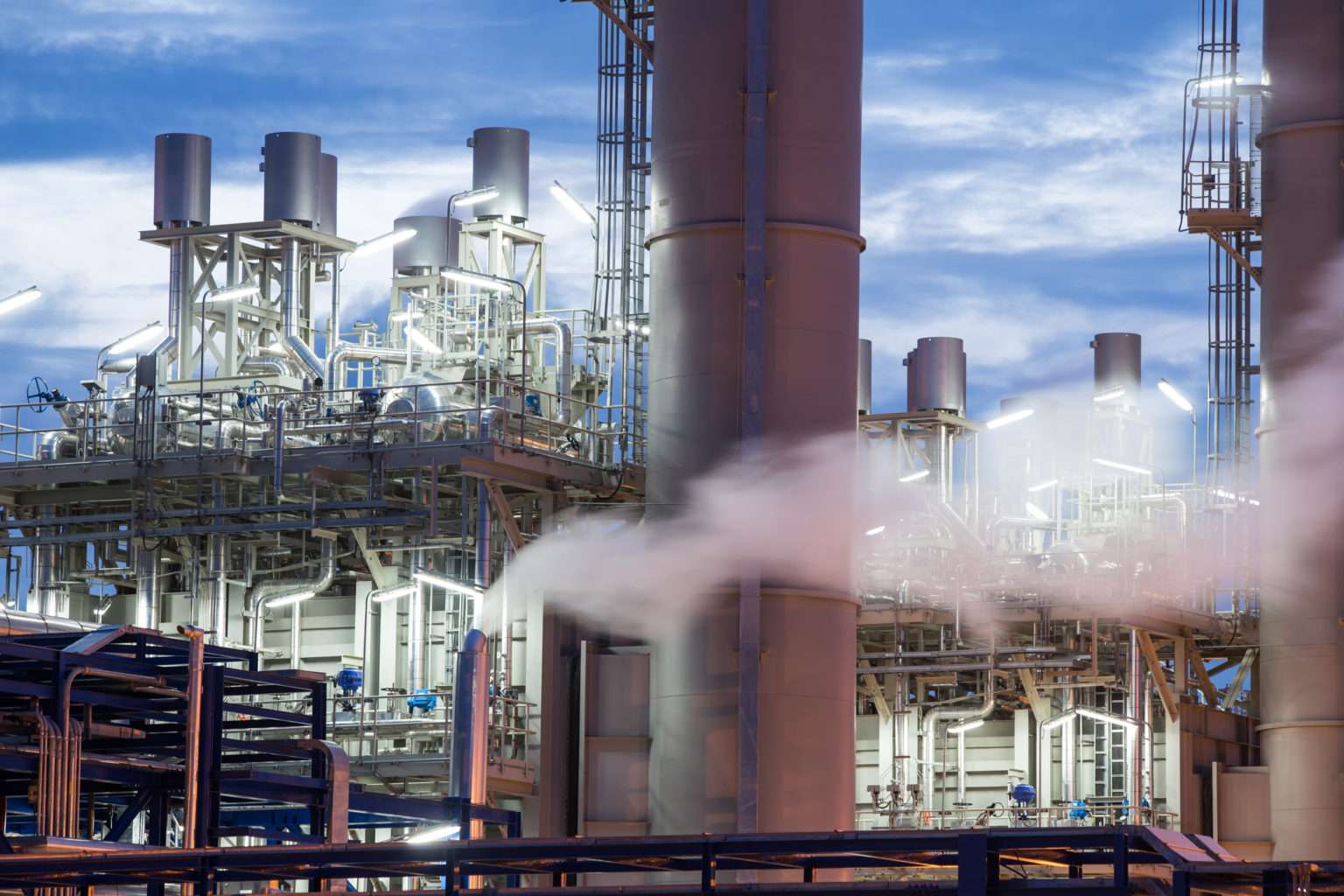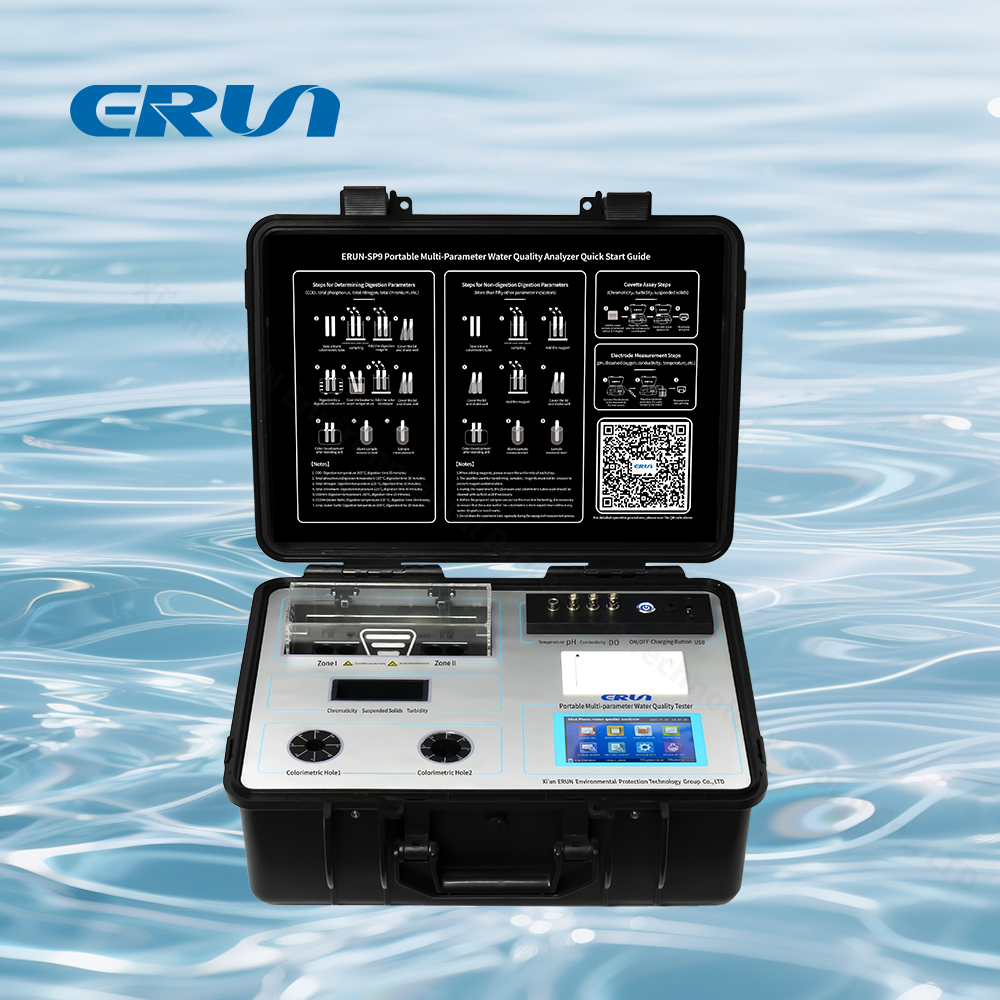Chloride ions are one of the most harmful contaminants in boiler water. Even at low concentrations, they can trigger aggressive corrosion, pitting, and permanent damage to boiler tubes and pressure vessels. If chloride levels rise too high, the entire boiler system becomes vulnerable to failures, unsafe operation, and costly repairs.
In this article, we will break down everything you need to know about boiler water chloride ions treatment—including how chlorides enter the system, the risks they create, how to reduce them effectively, and why accurate multi-parameter testing is essential. You will also learn how the Erun Portable Multi-Parameter Water Quality Tester ERUN-SP9 can drastically improve your monitoring and protection strategy.
Chloride ions (Cl⁻) are highly soluble anions found in many natural water sources. While harmless in small amounts, they become extremely aggressive in hot, pressurized environments such as boiler systems. Chlorides accelerate metal penetration, resulting in:
Pitting corrosion
Stress corrosion cracking
Ruptured boiler tubes
Reduced boiler efficiency
Premature equipment failure
Most boiler manufacturers set strict limits for chloride content in boiler water and feedwater, often requiring continuous monitoring and rapid corrective action if levels rise. This makes chloride control a key part of any boiler water treatment program.
Accurate chloride monitoring is the foundation of successful treatment. Without reliable testing, operators cannot identify contamination sources or adjust treatment strategies effectively.
Conventional methods include:
Chloride titration kits
Ion-selective electrodes
Silver nitrate titration
While these methods work, they can be slow, technique-sensitive, and prone to user error—especially in busy industrial environments where fast decisions are necessary.
The Portable Multi-Parameter Water Quality Tester ERUN-SP9 dramatically improves water quality monitoring.
ERUN-SP9 features:
Advanced optical 16-channel design
Ability to detect 60+ water quality parameters
Measurement of pH, conductivity, TDS, salinity, dissolved oxygen, water temperature, and more
Flexible parameter configuration for customized industrial testing
Although chloride is not directly measured through standard parameters, conductivity, salinity, and TDS provide immediate indicators of chloride spikes or contamination trends. ERUN-SP9 gives operators a fast and portable way to evaluate boiler water quality anytime.

Before applying treatment solutions, it’s important to understand the underlying cause of chloride contamination.
Raw water naturally contains varying levels of chloride. If the feedwater treatment system is insufficient or bypassed, chlorides can pass directly into the boiler.
Saltwater or cooling water intrusion is one of the most common and dangerous causes of sudden chloride elevation in high-pressure boilers. Even a tiny condenser leak can introduce large volumes of chlorides.
If blowdown is inadequate, chlorides accumulate quickly due to evaporation and concentration cycles.
Certain treatment chemicals may contain chloride impurities if not sourced correctly.
Understanding these causes makes it easier for operators to apply targeted boiler water chloride ion treatment solutions.
This is the most important section—and the core of protecting boiler systems.
Effective external treatment systems include:
Reverse Osmosis (RO)
Deionization (DI)
Demineralization units
Ion exchange dealkalizers
RO is particularly effective because it can remove up to 99% of chloride ions, making it one of the best long-term solutions for chloride control in industrial boilers.
Chemical treatments do not remove chlorides but mitigate their corrosive effects, such as:
Film-forming amines
Oxygen scavengers (to prevent synergistic chloride-oxygen corrosion)
Corrosion inhibitors
These chemicals form protective layers on metal surfaces, slowing chloride attack.
Blowdown is the direct method of removing concentrated boiler water containing chloride ions.
Proper blowdown strategy depends on TDS, conductivity, and chloride estimates. This requires accurate monitoring—exactly where ERUN-SP9 proves valuable.
When chloride contamination is detected:
Increase blowdown frequency
Identify and isolate contamination sources quickly
Test feedwater, condensate, and boiler water using ERUN-SP9
Return treatment chemicals to baseline and rebalance chemistry
Rapid detection and corrective action can prevent irreversible corrosion.
The ERUN-SP9 Portable Multi-Parameter Tester elevates chloride control in several ways.
ERUN-SP9 provides immediate readings for:
Conductivity
TDS
pH
Salinity
Temperature
These parameters change dramatically when chloride contamination occurs. The ability to cross-analyze multiple indicators simultaneously allows operators to detect issues early.

Since ERUN-SP9 is portable and easy to use, technicians can test water at:
Feedwater inlet
Boiler drum
Condensate return line
Blowdown outlet
This real-time visibility is critical for controlling chloride ions before they cause permanent damage.
Consistent monitoring trends help in:
Adjusting RO or demineralization performance
Optimizing blowdown
Preventing corrosion
Extending boiler life
ERUN-SP9 becomes a long-term asset for any boiler water treatment program.
To ensure safe and stable boiler operation:
Maintain strict chloride limits per boiler manufacturer guidelines
Test water daily using ERUN-SP9
Inspect feedwater and condensate systems regularly
Monitor conductivity and TDS trends to detect contamination early
Ensure proper blowdown rates and chemical balancing
Document water quality results for trend analysis
Reliable monitoring is the most effective safeguard against chloride corrosion.
Chloride ions pose a serious threat to boilers, causing pitting corrosion, cracking, and equipment failure. Controlling them requires a comprehensive approach: identify contamination sources, apply external and internal treatment methods, optimize blowdown, and monitor key indicators continuously.
The ERUN-SP9 Multi-Parameter Water Quality Tester provides the accuracy, speed, and versatility needed to support effective treatment of boiler water chloride ions. With its 16-channel optical system and ability to detect 60+ water parameters, ERUN-SP9 is an essential tool for engineers and water treatment professionals.
To learn more or explore advanced water quality solutions, visit erunwas.com.